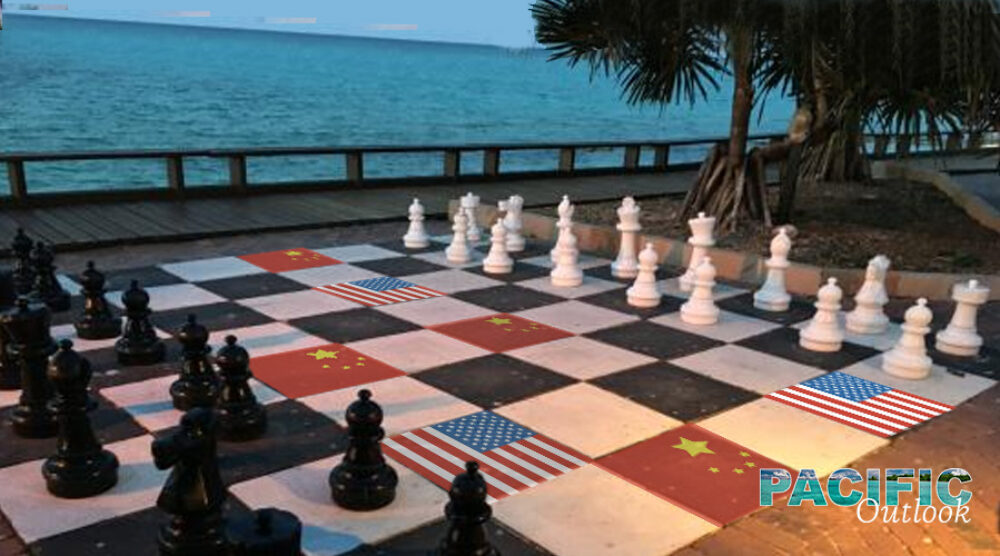A more powerful China is relentlessly contesting the maritime security order in the Pacific Ocean. For the first time since the end of the Second World War (when US General Douglas MacArthur declared that the whole of the Pacific Ocean had become an ‘American lake’) a major power is challenging US power in the Pacific. For the past 75 years, US military preponderance – built on a series of fortified bases and an unrivalled mobile force in the north-west Pacific – has underpinned a stable regional security order. Now, China’s investment in military technologies and an ocean-going navy, as well as the fortification of artificial islands in the South China Sea, is unsettling that order.
This new dynamic has seen resurgent interest in Pacific island countries. The US and its allies and partners (particularly Australia, New Zealand and Japan) have stepped up engagement with island administrations. Of particular concern are reports that infrastructure loans could be used as leverage to secure a Chinese naval base in the Pacific islands. Regional democracies have promised to help protect the sovereignty of Pacific island states, and to ensure that island leaders are able to make decisions free from coercion.
Amidst this geostrategic competition, Pacific island governments insist climate change is their most pressing security concern. Commander of Fiji’s military, Rear Admiral Viliame Naupoto told the Shangri La Dialogue in 2019: “I believe there are three major powers in competition in our region … there is the US … there is China [and] the third competitor is climate change. Of the three, climate change is winning and climate change exerts the most influence on countries in our part of the world”. In 2018, Pacific leaders signed a regional security declaration affirming climate change is the ‘single greatest threat’ to the region. Pacific island states have lobbied the UN Security Council to address climate change, and called on countries to strengthen commitments under the Paris Agreement. Pacific island countries especially want Australia, the largest member of the Pacific Islands Forum, to develop more ambitious climate policy and join their diplomacy to strengthen global climate ambition.
This article is an excerpt from the article “A competitive post-carbon world” published at National Security College Futures Hub, written by Griffith Asia Institute Adjunct Research Fellow, Dr. Wesley Morgan and republished with permission.








